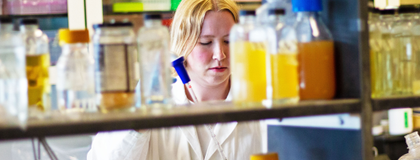
Master of Biotechnology
Biotechnology is a diverse, entrepreneurial and fast-changing field.
The University of Guelph’s Master of Biotechnology program prepares future biotechnology leaders through a mix of hands-on scientific and technical training and real-world business skills.
You’ll gain deep scientific expertise and entrepreneurial skills from specialized faculty across both biological science and business management fields, with opportunities to work directly with industry on either a lab- or business-focused research project.
Grads go on to pursue rewarding careers in the fields of food and agribusiness industries, plant biotechnology, pharmaceuticals, health management and environmental research.
The interdisciplinary training you receive in this course-based master's program draws on the expertise of two University of Guelph departments: the Department of Molecular and Cellular Biology and the Department of Management.

Degree Details
The Master of Biotechnology is a one-year, course-based graduate program providing students with advanced education, knowledge, technical and business expertise in the broad field of biotechnology. Studies begin in the fall every year.
Students normally take three courses per semester for two semesters (3.0 credits) and complete the Biotechnology Masters internship project (1.0) credit in semester 3. There is, however, the option to continue the Biotechnology Masters project into a second fall semester.
You do not need to find a supervisor before applying to the program. Students are matched to supervisors during the first semester based on the students' research interests.
- Top Comprehensive University
- in Canada (Maclean’s)
- #2 in Biotechnology in Canada
- Top 75 in the World (Shanghai Rankings 2025)
- Top 150 in the World
- for Life Sciences (Times Higher Education 2026)
- #1 in Total Research Dollars
- in Canada for a Comprehensive University (Maclean’s)

What You'll Gain
- The advanced skills, knowledge, technical and business expertise required to qualify for a wide range of biotechnology jobs
- Training to become an independent and creative researcher/manager who can integrate science and business perspectives
- Hands-on experience engaging in collaborative, real-world biotechnology research on campus with other graduate students and faculty
- Academic and intellectual growth through interactions with other graduate students, faculty, the wider research community and the private sector, as well as networking connections that reach far beyond Guelph
- Entrepreneurial skills crucial to launching companies that commercialize innovations
- The skills to communicate scientific knowledge effectively and place it in a business context
Strong Industry Connections
Our faculty members conduct research for a wide variety of biotechnology companies, including those specialized in nutraceuticals and natural health products. Students in our program gain practical skills and exposure to the business challenges of commercializing biotechnology innovations.
Many of our industry partners are companies founded and led by University of Guelph alumni. These companies cover a wide range of sectors. Here are just a few examples:
- Escarpment Laboratories produces high-quality yeast cultures on an industrial scale for beer microbreweries
- Mirexus Biotechnology has developed the world’s only safe and natural nanotechnology with applications including personal care and nutraceutical products
- PlantForm Corporation has developed an innovative, low-cost manufacturing system for a wide range of plant-made pharmaceuticals
For biotechnology companies interested in hiring a Master of Biotechnology student for their summer internship, learn about the hiring timeline and the benefits of hiring one of our students.
Research Projects
In the third semester, students carry out a four- or eight-month research project, guided by a faculty supervisor. The projects can involve laboratory research and/or business planning for the biotechnology industry. Projects are directly linked to industry, and students will develop marketable skills that prepare them for a variety of biotech jobs.

Biotechnology Business Management
Learn skills to translate academic ventures into business opportunities in several sectors, including the pharmaceutical industry, the agricultural industry and the food manufacturing industry.
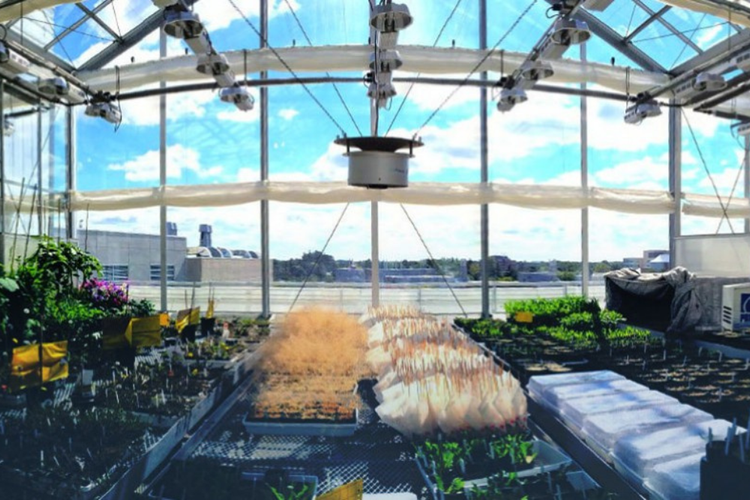
Agri-Food Biotechnology
The hands-on skills you will acquire working in the agri-food sector have broad-reaching applications, from industries such as crop utilization to biofuel production and environmental sustainability.
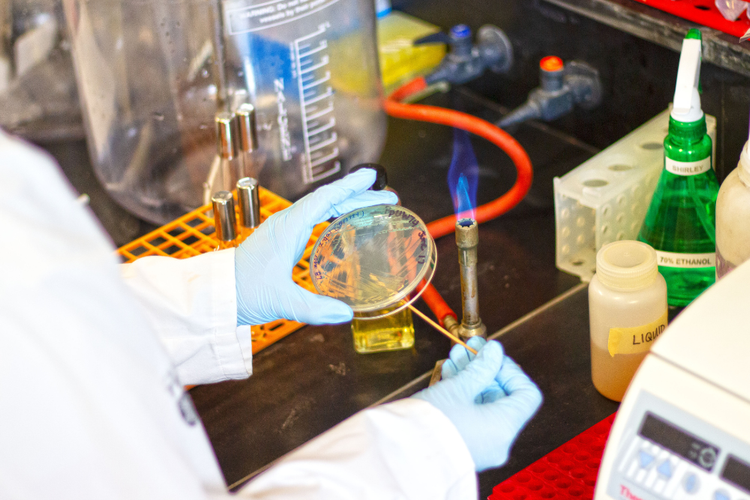
Biotechnology and Human Health
Complete a project that has a direct impact on the health of those around you with a focus on pharmaceutical development and manufacturing, pre-clinical drug screening and disease research.
Host Departments
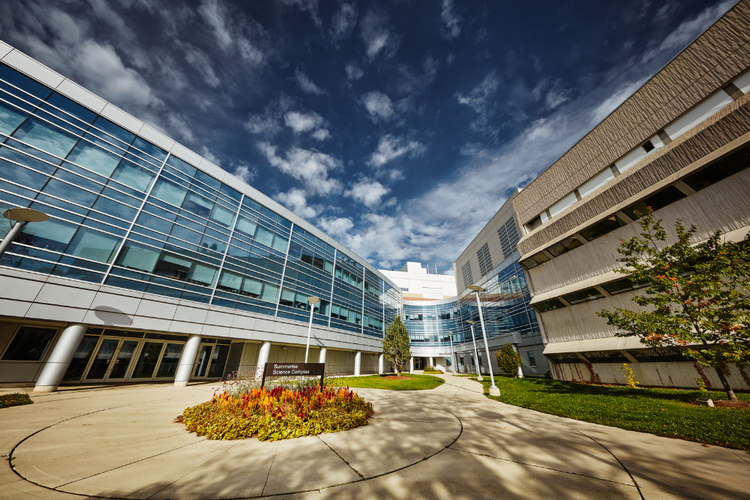
Department of Molecular and Cellular Biology
More than 40 faculty members in the Department of Molecular and Cellular Biology, part of the College of Biological Science, direct multidisciplinary research programs that address novel biological questions on molecular and cellular scales. Faculty strengths in Molecular and Cellular Biology include biochemistry, cell biology, immunology, microbiology, molecular biology and genetics, plant biology, neuroscience, and vaccinology. Here are just a few examples of the groundbreaking research being led by our professors:
- Advancing drug discovery and immune-based therapies for human infectious and inflammatory diseases
- Developing novel traits for plants and treatments for crop disease
- Investigating new therapeutic candidates to combat antimicrobial resistance
- Improving the efficiency of yeast fermentation for alcohol production
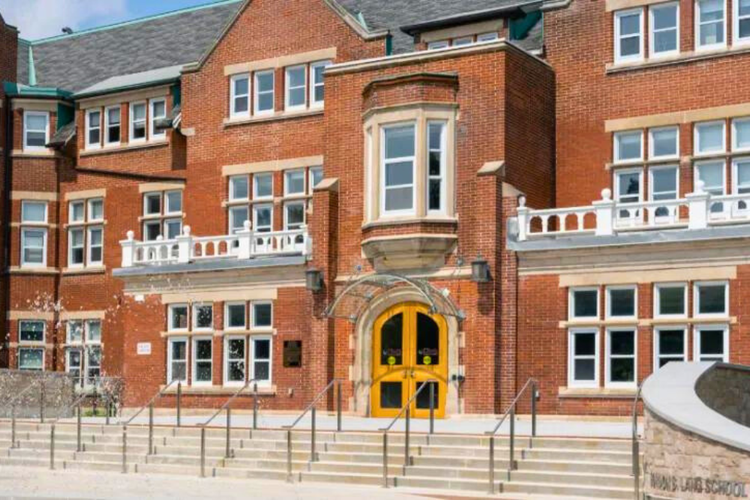
Department of Management
The Department of Management, part of the Gordon S. Lang School of Business and Economics, develops leadership skills through engaging teaching and research, understanding that success requires a strategic outlook, entrepreneurial attitude, global perspective and commitment to sustainability. Our faculty-led biotechnology-related research projects include:
- Research into the ways new, university-developed technologies enter into commercial use
- An examination of the creativity of interdisciplinary product development teams working on the technical, marketing and financial viability of new ideas
- Research on accountability, performance management, innovation and entrepreneurship

Why Guelph?
Guelph is one of the fastest-growing cities in Canada, but maintains the charm and appeal of a small university town. The university campus is in close proximity to the downtown core, which hosts excellent restaurants, bistros, and specialty stores, and near Toronto, Canada’s largest city, and several international airports.
Career Opportunities
Within a year of completing the program, 88% of graduates of the Master of Biotechnology program were working in their field of study in positions such as:
- Biologists
- Biotechnologists
- Business analysts
- Business development associates
- Chemists
- Laboratory technicians
- Medical writers
- Regulatory affairs specialists
- Research assistants
- Sales executives at biotechnology, pharmaceutical and environmental companies
Hear from Biotechnology Graduates
Admission Information
Students entering the program will normally have completed an honours bachelor’s degree with a minimum admission average of B (75% and higher) in one of the following fields:
- agriculture
- biochemistry
- biology
- biophysics
- biotechnology
- chemistry
- environmental science
- food science
- food production systems
- microbiology
- molecular biology and genetics
Other Requirements
- Honours bachelor’s degree with a minimum admission average of B (75% and higher in the last two years of full-time study)
- A strong science background (second-year molecular and cellular biology course or equivalent). Those applicants applying after having work experience will be assessed on a case-by-case basis by the admissions committee.
- If your first language is not English, you will be required to submit an acceptable result from one of the approved standardized English language tests. Please make note of these departmental minimum test scores:
- For TOEFL, a minimum score of 93, with a minimum score of 22 in each of the four categories
- For IELTS, a minimum score of 7.0, with a minimum of 6.5 in each component
- For Duolingo, a minimum overall score of 130, with a minimum score of 120 in each of the four categories
- We only grant exemptions if you have received a university degree completed in English from Canada, Australia, New Zealand, the United States, and/or the United Kingdom.
- Please note that these test score requirements are higher than the general university requirements because this is a fast-paced, course-based graduate program. We cannot accept applicants with test scores lower than the minimums stated above.
- For international applicants, in order to assess whether your degree is equivalent to a four-year honours bachelor's degree, please review this information about international credential guidelines for specific countries. Post-graduate certificates and diplomas are not accepted as equivalents.
- A Graduate Record Examination (general) is not required.
- You do not need to find a supervisor before applying to the program. Students are matched to supervisors during the first semester based on the students' research interests.
The application for September 2026 intake closes on March 15, 2026, at 11:59 p.m. (EST), with a document submission deadline of March 31, 2026, at 11:59 p.m. (EDT).
- Students will be admitted to the Master of Biotechnology program from a range of undergraduate programs in the biological and life sciences.
- Students from other undergraduate programs, will be considered for admission if they have a sufficient background in the biological sciences (e.g., biomedical engineering).
- To be considered for admission, applicants should meet the minimum requirements of an honour's degree (usually four years) from a recognized post-secondary institution with a minimum 75% average over the last two years of full-time equivalent study. (Please note that this is a competitive program and incoming averages of successful applicants are typically above 80%.)
- We only offer a fall admissions intake.
International Applicants
If your first language is not English, you will be required to submit an acceptable result from one of the approved standardized English language tests. Please make note of these minimum test scores:
- For TOEFL, a minimum score of 93, with a minimum score of 22 in each of the four categories
- For IELTS, a minimum score of 7.0, with a minimum of 6.5 in each component
- For Duolingo, a minimum overall score of 130, with a minimum score of 120 in each of the four categories
- We only grant exemptions if you have received a university degree completed in English from Canada, Australia, New Zealand, the United States, and/or the United Kingdom.
- Please note that these test scores requirements are higher than the general university requirements because this is a fast-paced, course-based graduate program. We cannot accept applicants with test scores lower than the minimums stated above.
For international applicants, to determine if your undergraduate degree is sufficient for application to our program, please review information about international credential guidelines for specific countries. Post-graduate certificates and diplomas are not accepted as equivalents.
What documents do I need to submit for my application?
You will be asked to upload your transcript(s), a resume/CV and the contact information of two academic references.
What transcripts are needed?
For the application process, you can submit scanned copies of your transcripts. Applicants who are accepted into the program will be required to submit final and official transcripts.
Do I need a statement of interest?
There is a very short statement of interest required on the OUAC application form. You do not need to write a separate statement of interest.
Should I have my references complete a reference letter?
Your referees will be sent an electronic form to complete; you do not need to ask them to write a reference letter.
Does it matter how much time it has been since my last school year?
For applicants who have been out of school for several years, please contact us to discuss appropriate references.
Do I need to find a faculty mentor before applying?
No, students do not need to find a faculty mentor before applying to the program. Students are supported by the faculty Program Director throughout the program and in addition, have a faculty advisor and/or external collaborator to support their progress during the summer placement.
Are there any entrance awards available?
There are no entrance awards available specifically for the MBIOT program. Please see the Scholarships and Awards webpage for information about internal and external graduate awards and their eligibility criteria.
Where do I apply?
Apply online through the Office of Graduate and Postdoctoral Studies at the University of Guelph. Visit the Applying to Guelph webpage for full details.
Is there an application deadline?
The next program intake is September 2026. Applications are now open and will close on March 1, 2026, at 11:59 p.m. (EST), with a document submission deadline of March 14, 2026, at 11:59 p.m. (EDT). Applications will be reviewed on a rolling basis and we encourage international students to apply early.
Will I have the opportunity to apply for graduate teaching assistantships (GTA) during my MBIOT degree?
Yes, any student enrolled in a graduate program at the University of Guelph can apply for a GTA; however, there is no guarantee that you will receive a GTA. For a complete list of GTA positions available on campus, please visit Available TA Positions.
Can I extend my research project from 4 months to 8 months?
Yes, with agreement from their project supervisor, students can extend their project an additional 4 months, finishing at the end of the fall semester.
I have accepted my offer in WebAdvisor. How do I register and select courses, pay tuition, etc.?
Please see the Schedule of Dates in the Graduate Calendar to see when course selection opens/ends. The Registration Guide will help you through the registration process.
When can I start the MBIOT program?
Students can only start the MBIOT program on the first day of classes in September of each calendar year.
My previous degree program is not listed as one of the eligible programs. How can I determine if my previous degree meets the eligibility requirements?
Degree program names and courses taken vary by institution. The Admissions Committee will be looking for a strong science background, with at least a second-year molecular and cellular biology course or equivalent.
For international applicants, please refer to the International Credential Guidelines to determine the equivalency of your previous degree. Post-graduate certificates and diplomas are not accepted as equivalents.
I am an international applicant. Do I need to submit English proficiency test scores?
English proficiency test scores are not required for applicants whose first language is English. If your first language is not English, you will be required to submit an acceptable result of one of the approved standardized English language tests. Please make note of these minimum test scores:
- For TOEFL, a minimum score of 93, with a minimum score of 22 in each of the four categories
- For IELTS, a minimum score of 7.0, with a minimum of 6.5 in each component
- For Duolingo, a minimum overall score of 130, with a minimum score of 120 in each of the four categories
We only grant exemptions if you have received a university degree completed in English from Canada, Australia, New Zealand, the United States and/or the United Kingdom.
Please note that these test score requirements are higher than the general University requirements because this is a fast-paced, course-based graduate program. We cannot accept applicants with test scores lower than the minimums stated above.
How do international students apply for a study permit?
Please use the official offer of admission that you received from the Office of Graduate and Postdoctoral Studies to apply for your study permit. You can apply for a study permit with a conditional offer of admission. If you have specific questions about your study permit application or transition to the University of Guelph, please reach out to an International Student Advisor.
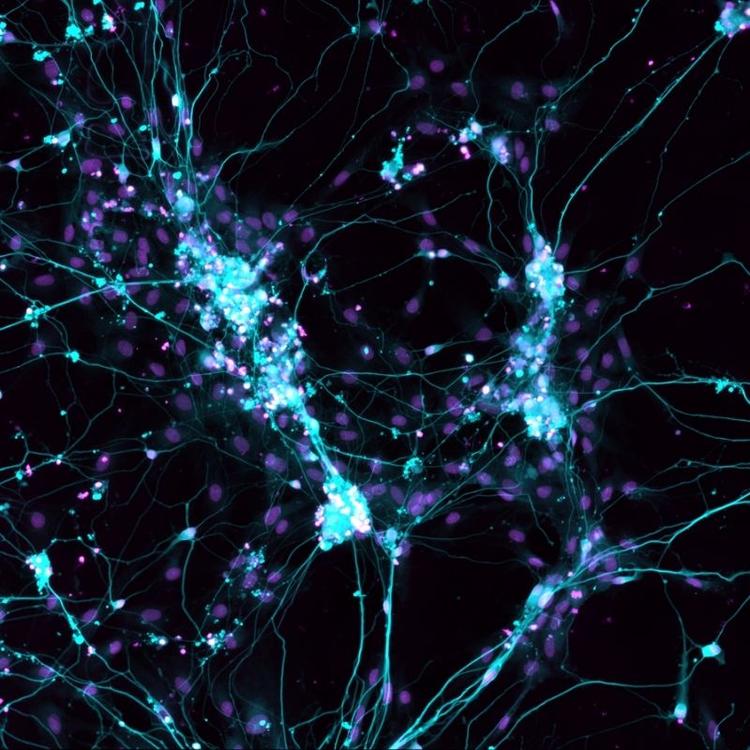
Contact Us
Patricia Van Asten, MBIOT Program Coordinator
mbiotech@uoguelph.ca
519-824-4120 x56474
Dr. Ian Tetlow, Program Director
itetlow@uoguelph.ca
519-824-4120 x52735




